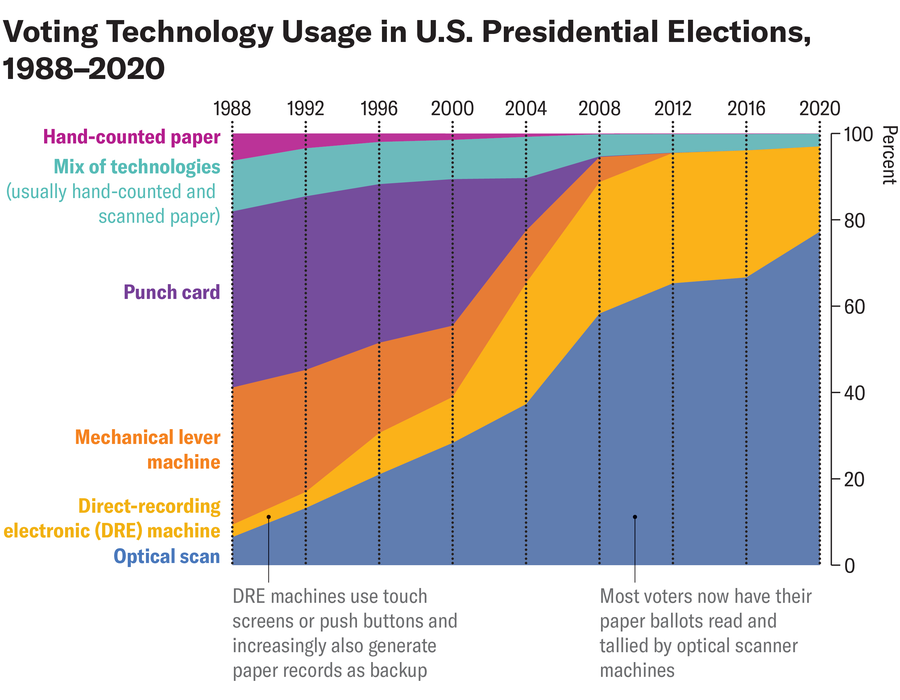REP. HARRIET HAGEMAN
CONTRIBUTOR
For two generations the Chevron Doctrine has given federal agencies an unfair advantage, outsized authority and unconstitutional power in interpreting statutes and issuing rules. Friday, the Supreme Court righted this wrong.
Carved into the stone above the Supreme Court’s grand entrance is the phrase “Equal Justice Under Law.” But for as long as Chevron deference has existed, the courts have favored the desires, opinions and agendas of unelected bureaucrats, while placing unfair burdens on the American people. Established in the 1984 case Chevron v. NRDC, this doctrine instructs courts to defer to federal agencies’ interpretations of laws where the underlying statute is, according to the agencies themselves, ambiguous or even silent.
As a career Constitutional law and water rights attorney, I’ve seen first-hand how Chevron deference tips the scales of justice against the American people and in favor of the federal government. In short, the Judiciary surrendered its duty to interpret and apply the law for nearly 40 years, blindly trusting agencies to interpret the scope of their own power and what the law means.
I’ve spent decades fighting against Chevron deference in my role as a private attorney and while working as Senior Litigation Counsel for the New Civil Liberties Alliance (NCLA), a public interest law firm dedicated to protecting the constitutional rights of American citizens against unlawful regulatory overreach.
Chevron deference strips authority from our courts and emboldens federal agencies to exceed and abuse their congressionally designated powers. While the best antidote for an oppressive, overbearing executive branch is a strong Congress, the decision by the Supreme Court to end Chevron deference is a huge step towards restoring our constitutional freedoms and separation of powers.
There has been much handwringing over this decision by those who support giving the administrative state unlimited power. How will the government function? How will legislators and courts keep up with all this extra work? How will anyone know what a bill or statute means? We need the “experts” to decide! Let’s examine this hysteria.
For roughly two centuries our federal government functioned – and I might argue functioned better – without relying on the Chevron Doctrine. Congress passed laws; agencies enforced them and if adjustments were needed, then Congress could pass or repeal legislation to fix particular issues, or our courts would adjudicate them. While not even the greatest Congress can avoid some ambiguity when writing laws, more carefully thought out and thoroughly researched work can reduce it. Courts have always interpreted the meaning of laws – and being required to “defer” to an agency’s view simply because it could be deemed “reasonable” should be offensive to judges everywhere.
Congress has been ceding its legislative authority to unelected bureaucrats for far too long. Administrative rule-making, which the citizens and businesses must adhere to, has far outpaced actual lawmaking in America. The Biden administration issued 4,429 final rules in 2021. That number was 3,168 the following year. Over the same period, Congress passed only 365 bills that became law. This discrepancy is a stunning reality check – it has been federal bureaucrats, not your elected representatives, that have been legislating, and not one of them is accountable to you.
There has been much handwringing over this decision by those who support giving the administrative state unlimited power. How will the government function? How will legislators and courts keep up with all this extra work? How will anyone know what a bill or statute means? We need the “experts” to decide! Let’s examine this hysteria.
For roughly two centuries our federal government functioned – and I might argue functioned better – without relying on the Chevron Doctrine. Congress passed laws; agencies enforced them and if adjustments were needed, then Congress could pass or repeal legislation to fix particular issues, or our courts would adjudicate them. While not even the greatest Congress can avoid some ambiguity when writing laws, more carefully thought out and thoroughly researched work can reduce it. Courts have always interpreted the meaning of laws – and being required to “defer” to an agency’s view simply because it could be deemed “reasonable” should be offensive to judges everywhere.
Congress has been ceding its legislative authority to unelected bureaucrats for far too long. Administrative rule-making, which the citizens and businesses must adhere to, has far outpaced actual lawmaking in America. The Biden administration issued 4,429 final rules in 2021. That number was 3,168 the following year. Over the same period, Congress passed only 365 bills that became law. This discrepancy is a stunning reality check – it has been federal bureaucrats, not your elected representatives, that have been legislating, and not one of them is accountable to you.
The end of Chevron deference is the return to a system of government more aligned with our Constitutional Republic (despite the fact that CNN apparently doesn’t know what that means).
Congresswoman Harriet Hageman is serving her first term as Wyoming’s at-large Member in the U.S. House of Representatives. She serves on the House Committee on the Judiciary, the Select Subcommittee on the Weaponization of the Federal Government and the Committee on Natural Resources.
The views and opinions expressed in this commentary are those of the author and do not reflect the official position of the Daily Caller.
Related





















Discussion about this post